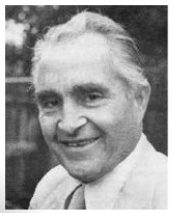“Excess of food is often but another term for a lack of fresh air and exercise.” -Herbert M. Shelton
“The smallest amount of food able to keep the body in a state of high efficiency is physiologically the most economical, and thus best adapted for the body’s needs.” -Russell Henry Chittenden
“Appetite” is a habit and as such can be trained to be satisfied with small amounts of food, or to demand enormous amounts of it. The English poet, John Dryden, said, “we first make our habits, and then our habits make us.”
Many people have never emptied the stomach completely. Most people have never experienced true hunger, which is a mouth and throat sensation, and not a feeling of emptiness and weakness.
People eat—either from habit or because they feel better, or stronger, and—frequently—because the food relieves distress or pain. The food has a stimulating effect, and forces the body to get busy dealing with the newly-swallowed food supplies.
The development of the habit of overeating starts all too early. The sad truth is that children are trained to overeat. From early infancy, babies are coaxed to take frequent feedings they do not need. Older children are bribed to “clean their plates” with the promise of a sweet dessert, which further complicates the digestion of the unnecessary meal. Worst of all, they are not even allowed to refuse a meal when they are not hungry.
Even the sick are urged to eat “to keep up their strength”—in spite of the protests from the ailing organism. Young girls are taught that the way to a man’s heart is through his stomach. The way to a man’s health is also through his stomach.
Selections from Lesson 44 – Overeating: Fasting Fanaticism And Diet Fanaticism: Terrain Wiki
